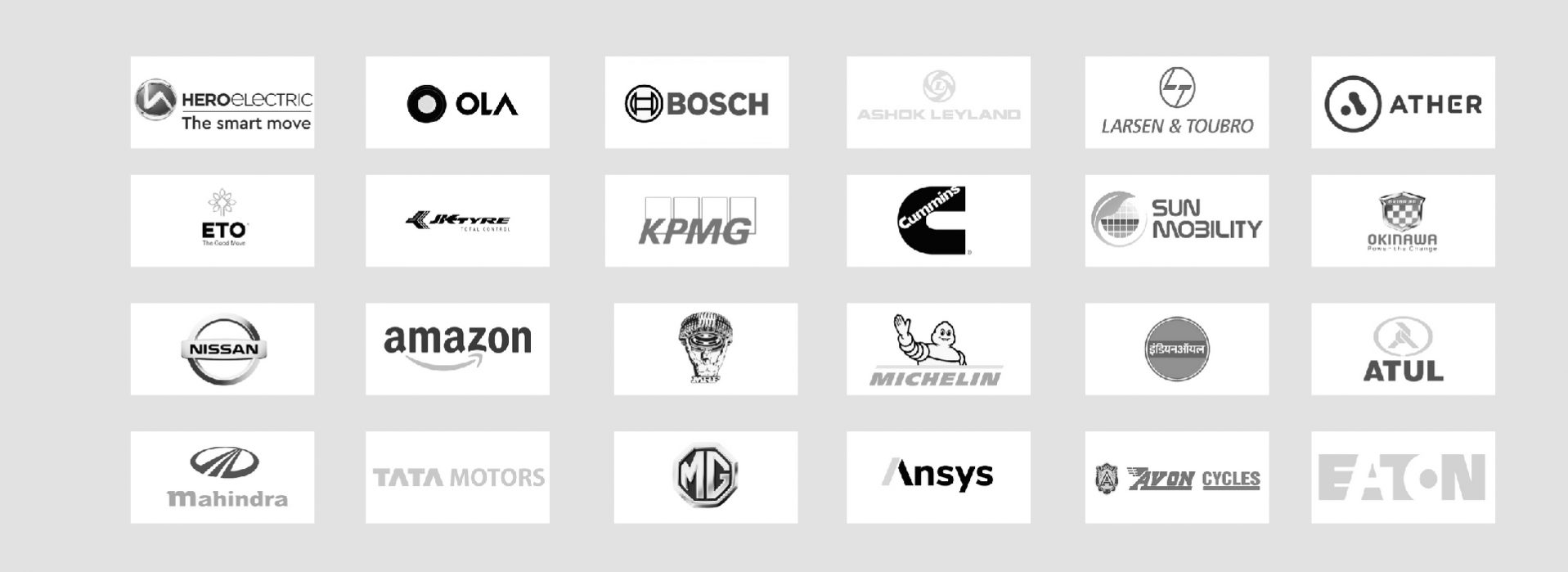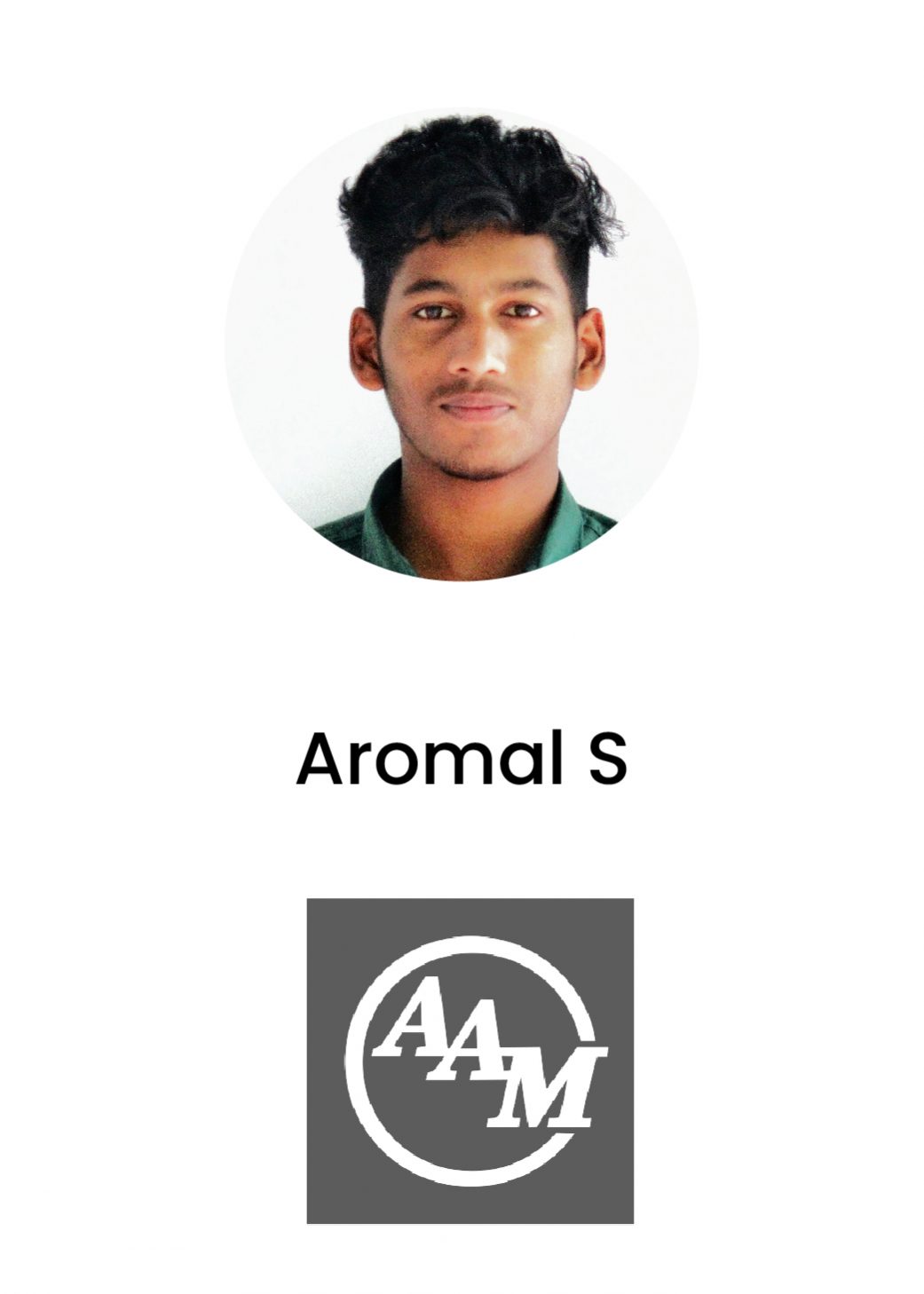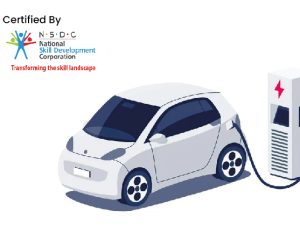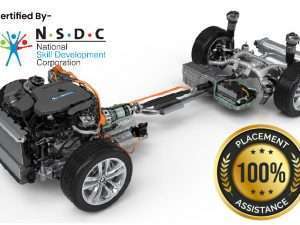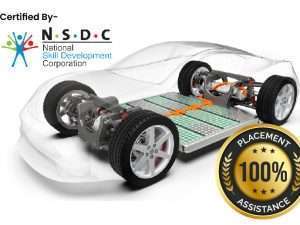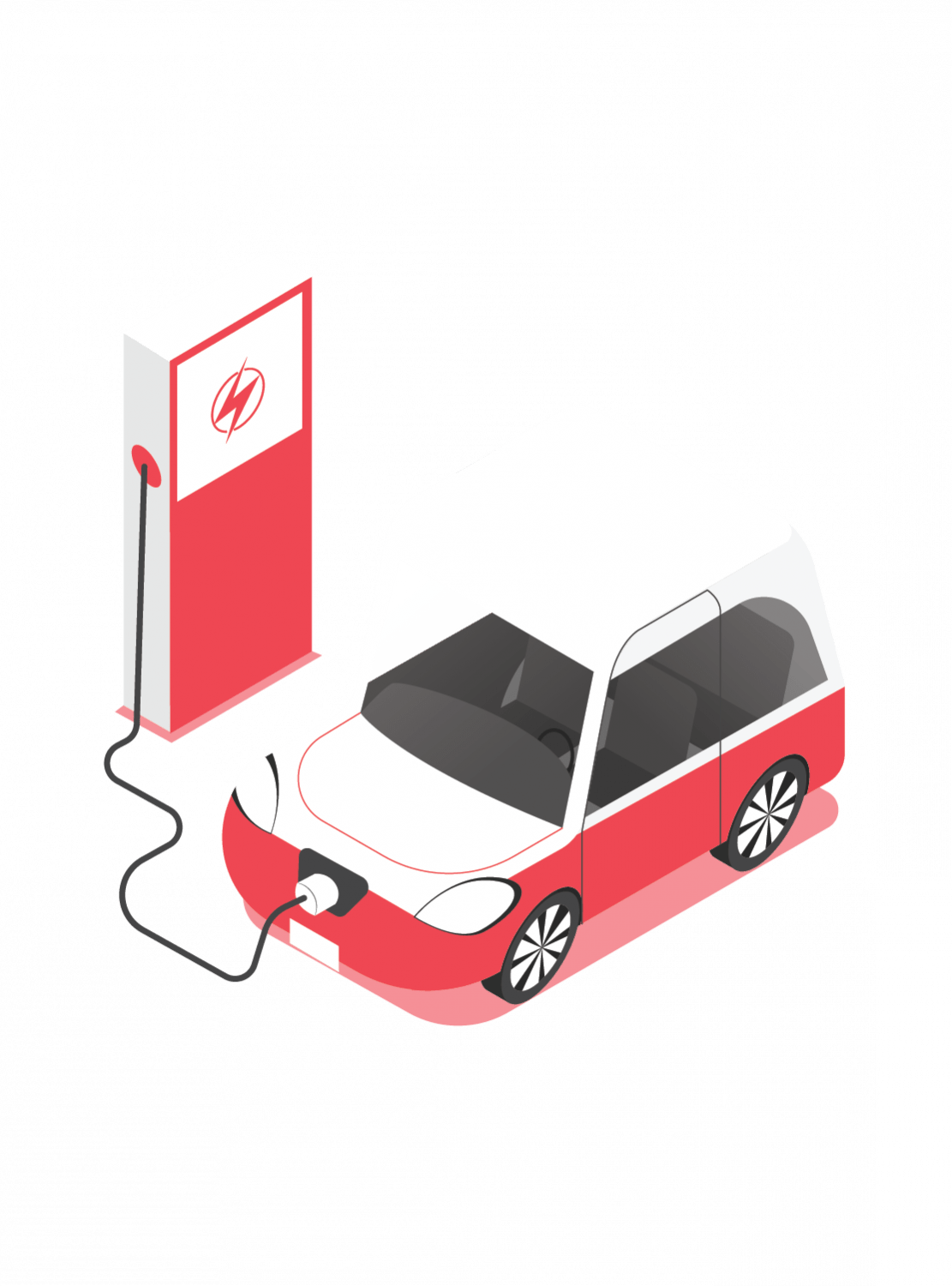Learn Introduction to BMS, Battery Pack Simulation, Battery State Estimation, Battery Health Estimation, Cell Balancing, Cell Power Limits, Physics Based Control, Introduction to BTMS, Thermal Loading, Heat Management accompanied with various recent case studies to attain the challenges set by the EV industries with Personalized Industry Mentorship, Career Guidance, and Placement Assistance and much more.
Battery Thermal Management and Safety
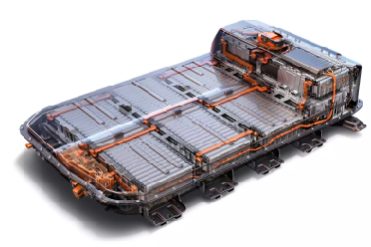
About the Program

Personalised Mentorship
Get mentored by an experienced EV Industry expert and receive personalised feedback calls for better career guidance.

Globally Valid Certificate
Get a Globally valid certificate and enter your workplace with confidence and assert yourself as a subject matter expert.

Student Support
Student support available 09 AM to 07 PM IST via email or call and get a response within 2 working hours.
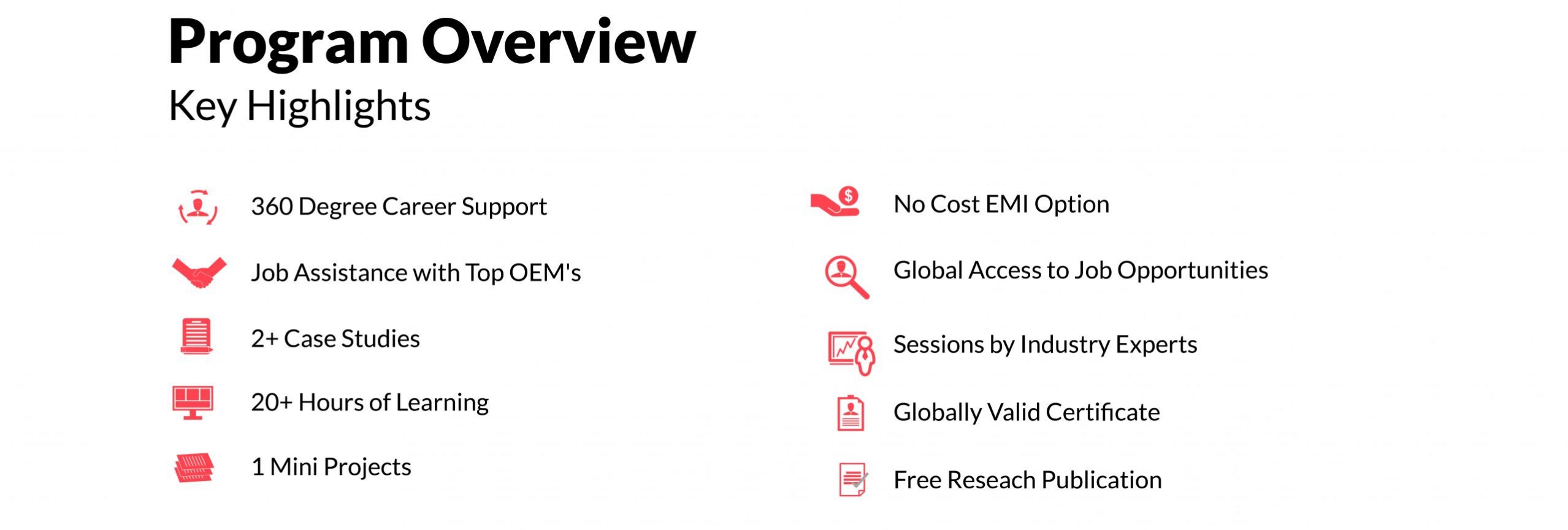
Specialized Battery Thermal Management and Safety
Certified by ASDC
Complete all the courses successfully to obtain the certification from ASDC.
• Globally Recognized Certificate
• Recommended program by SMEV, MSME and 17 + Automotive Industries.
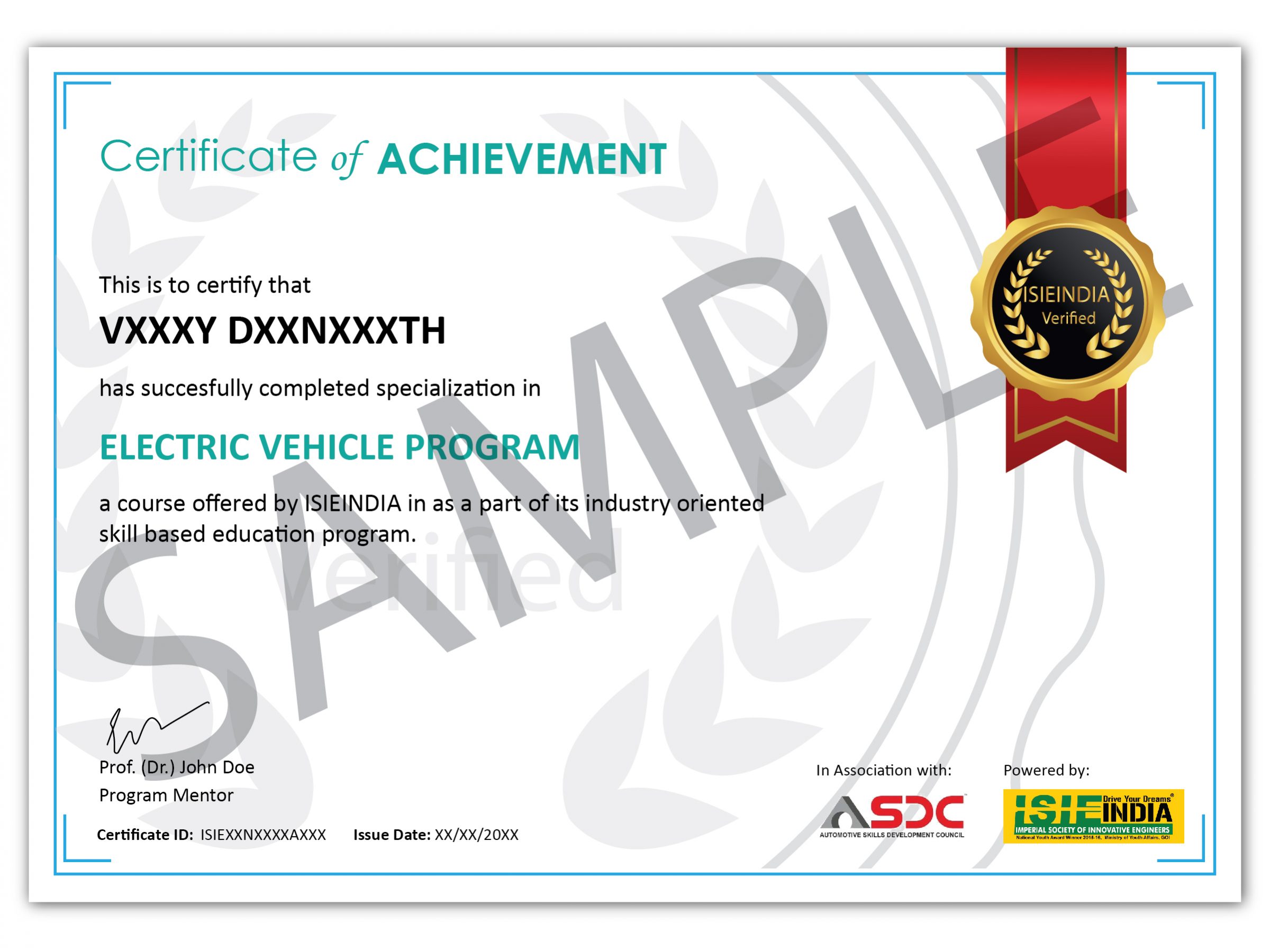
Case Studies
BMS Architecture for EV
BMS Architecture types used for 2 Wheeler and 4 Wheeler operation and how the communication and data gathering is different in both cases.
Battery Cooling Methods
Various cooling methods adopted by different companies for their battery pack. The cooling of the battery pack as per the utility and performance desired of the vehicle. Liquid Cooling vs Air Cooling battery packs.
Still Not sure?
Talk to our Expert Mentors
An Expert will reach out to you within 6 Hours
About Advance Electric Vehicle Design Program
In the recent last decade, we have seen news reports regarding heating up of mobile phone batteries and in many cases, it has also exploded injuring the consumer. Similarly, we also have had cases of Hyundai Kona catching fire in the summer season, due to excessive heating of the cell. All these incidents have proved how important it is to monitor lithium-ion cells.
The lithium-ion chemistries provide a high energy density of about 120 – 200 Wh/kg, as compared to a 40 – 50 Wh/kg of lead-acid battery. Due to space restriction, this difference in energy density has been the major reason for gaining popularity of these cells in Electric Vehicles. Despite providing high energy density, these cells also can provide high charge and discharge rate as required, but running it at those high rates might cause an increase in temperature of the cell and create instability. This is known as thermal runaway.
In order to control this, it becomes necessary to use a Battery Thermal Management System to monitor the charge and discharge cycle as well as cell balancing. Along with this for battery packs employed in electric vehicles might also require a good thermal management system, to control the heat dissipation and keep cells within temperature limits.
In this course, we will take a look at the various BMS architecture and thermal management systems, along with simulations for thermal dissipation.
Program Outcomes

Learn about the algorithm for cell balancing.

Circuit for overcharge and over discharge protection.

Learn about measurements of current and voltage for battery safety.

Learn about measurement of SOC and SOH

Battery safety and control methods.
ISIEINDIA Instructors
Learn from leading Industry oriented trainer, faculty and leaders
Our Expert Work At
Top companies from all around the world






ISIEINDIA Alumni
Where our Alumni Work
